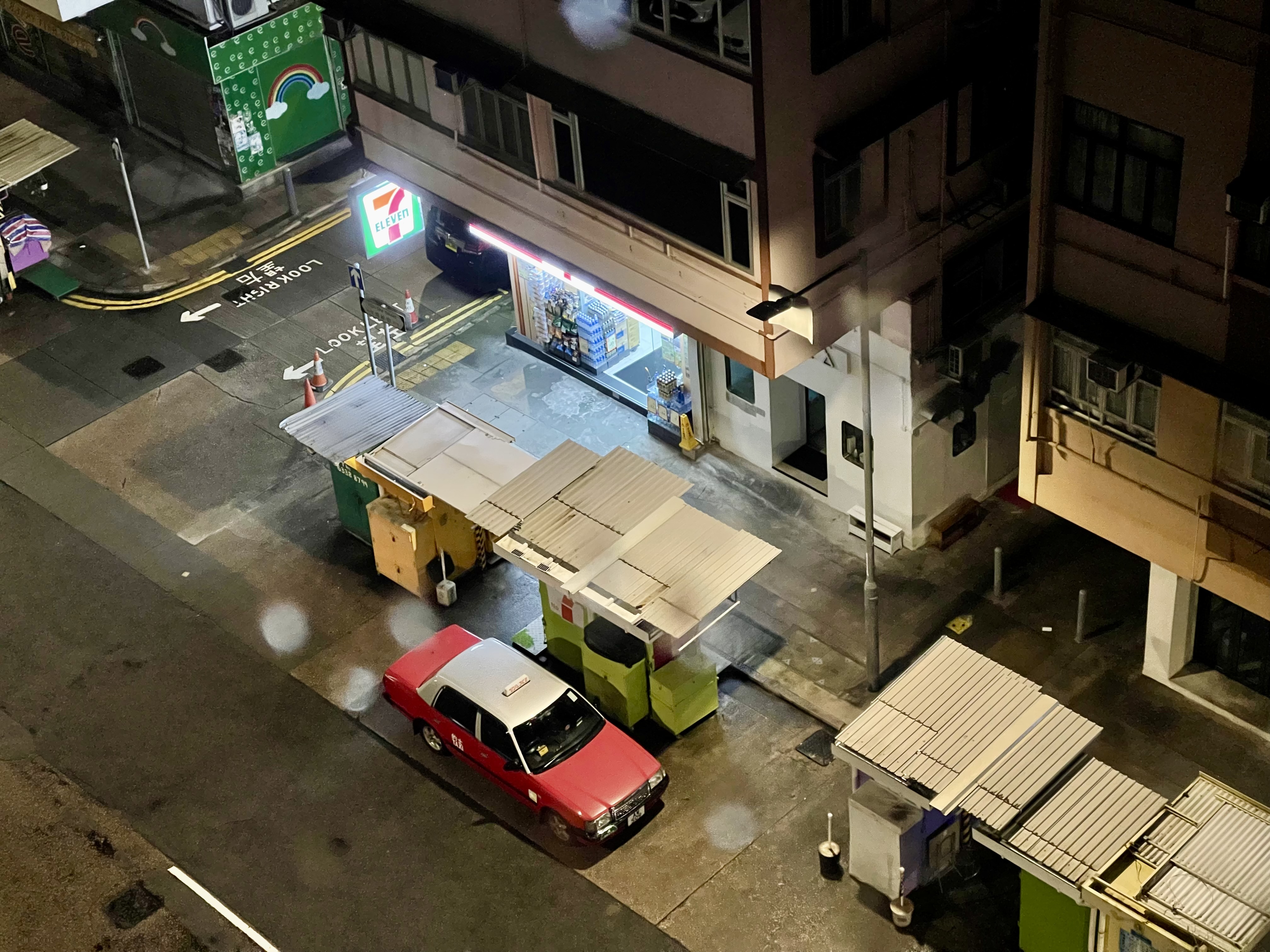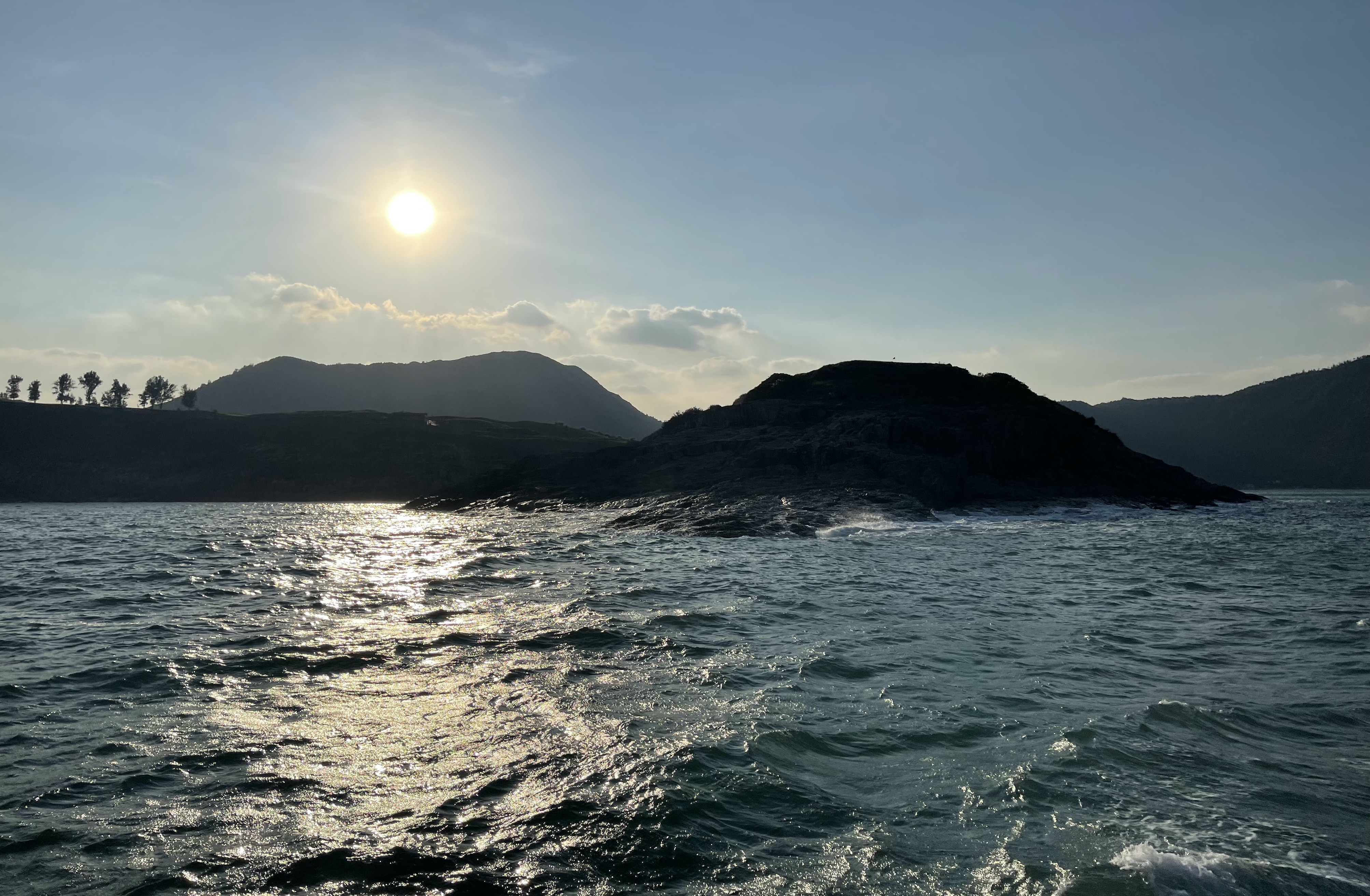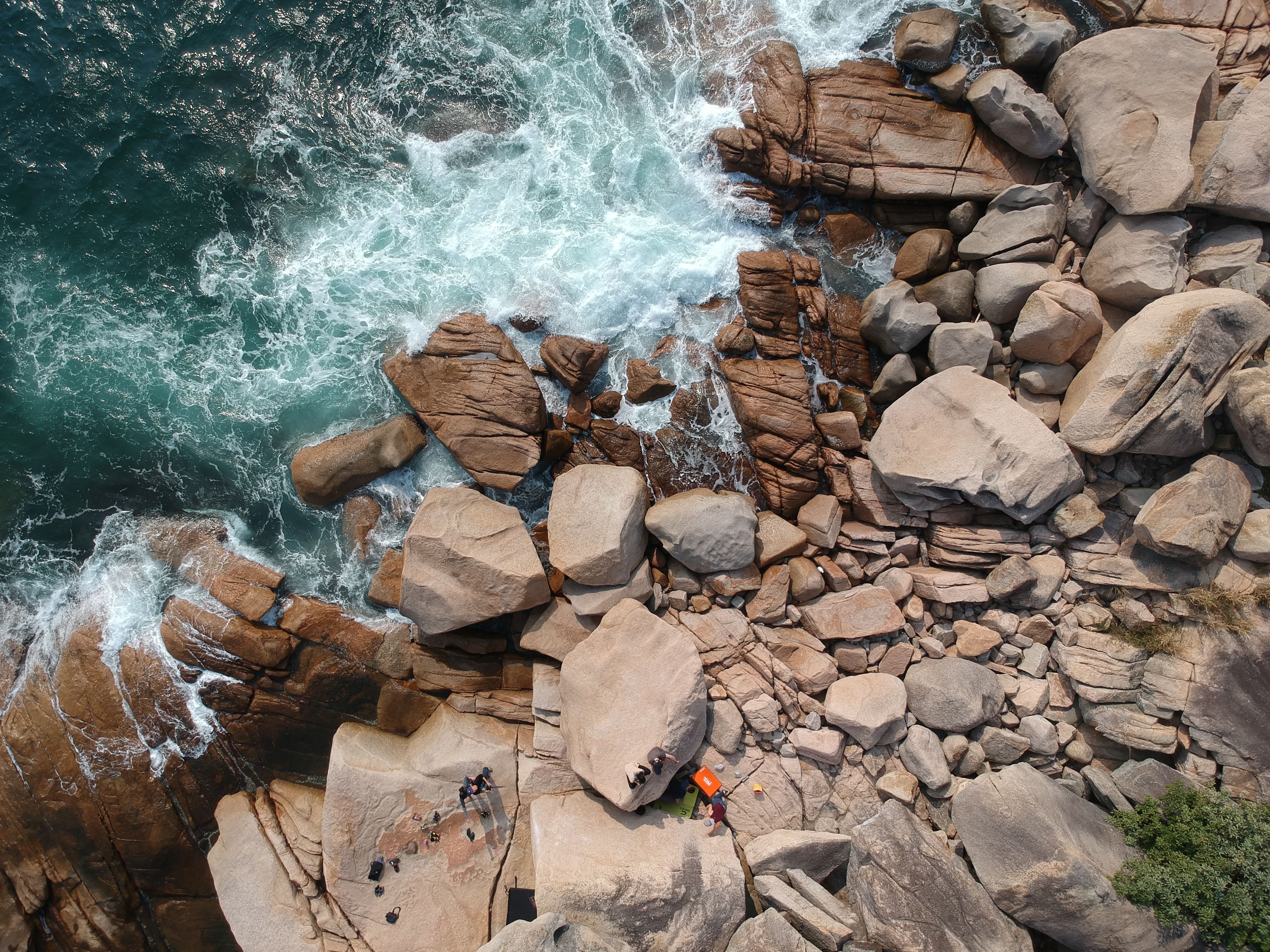On Sundays, after she’s eaten early and we’ve done a second diaper change, we head out. Our routine, like all things, is benefiting from practice. The first time out I forgot my wallet, and the second, a metal cup for tea. The first few times going into the carrier she fussed, almost but not quite enough to wake Tara.
Now we are happy and quiet, going into the carrier with no complaints, collecting wallet keys phone mask hat cup flip flops, and heading down the stairs before anyone is much the wiser. It’s humid in the stairs, and those seven flights are a slow way to get used to the weather after our air conditioned bubble.
By the coffee shop around the corner she’s often asleep, a scant twelve yards from our door. Sometimes she watches me order cold brew before passing out again. It’s early, after all. And then, standing outside in our alley, coffee in hand and baby asleep again, everyone lightly sweating, I am free.
I think a lot about freedom, what it means and where we find it. I think a lot about the hours in our lives that matter to us, and how they change. I remember strongly the feeling of freedom late at night, after the town or the campus or the city was mostly asleep. For as long as I can remember I’ve loved to be up high at night, to look out at a place and think about all the people who are there, invisible with their lights off, asleep. Mostly of course I think about those still awake, those heading to work at odd hours, or just finally coming home. I think about those up for no reason, and those up because of pain, medication, or young children.
In those contemplative moments I am free. Free to think about almost anything, to consider new ideas and observe things I’d otherwise ignore. It’s a feeling I love.
Lately I feel this way a lot, standing at our window watching Tai Hang at three, at four, at five am. I count the taxis parked along Wun Sha street every night, when their driver’s shifts are over. The current high is twenty five in sight at four thirty am, a number hard to top given the streets physical limits. For this view and these hours of freedom I deeply love Tai Hang. I love the 7-Eleven with it’s large entry, where people sit at all hours. I love the coffee shop next door to it that put up benches. These benches, unknown to the shop staff, have featured dates, late night delivery worker dinners, and smokers on their phones at three. They have hosted drunks of all genders in all combinations, continuing their evenings or sobering up before heading upstairs. Late at night our window is a great view into the kind of city I most appreciate.
And yet there’s another side, another set of hours in which to find freedom. San Francisco first convinced me of freedom in the early mornings. As painful as they were, once we were on bicycles to the gym at seven, we were free. Being first on the mats, able to climb any route without concern for overlap, to hear the songs the staff played while cleaning to wake themselves up, and having the sunrise pour through the windows, blinding us on top out, was freedom. Biking to work afterwards, having showered, past the construction site that is now the Warriors stadium, I felt almost as free as walking home late at night.
On Sunday, as I walk around the small blocks of Tai Hang at eight am with Clara asleep in her carrier, sipping my first coffee, I am free. I pop in to the French bakery for bagels and a croissant for Mr. Squish. I put those on a bench and drink coffee while leaning on a parking barrier, holding Clara and watching people in line for one of the cha chaan tengs in the back alleys. The clientele, at this hour, is mostly those like me, with young children, and groups of spandex-clad bikers and runners, eating after even earlier rides or runs. Half of us are escaping the later day heat, and half of us are simply following the child’s cycle. Later we will all be replaced by families, and by those with dogs, both of whom dine closer to 10 am on Sundays. I like this changing of the guard, and remember similar ones from my own restaurant days: the older folk, couples or alone, who would dine at five, right on open, and were often regulars. Then families, six to seven, and finally dates, younger couples and a wider variety, after eight. The hours change with country, or like with San Francisco, the weather, but the themes are consistent. We are all human, and hungry.
After the coffee is gone we purchase milk tea, in a metal cup we’ve carried clipped to our belt, for the sleeping family member. She’ll appreciate it, iced from her favorite street stall. After saying thank you we head home, our half hour stroll almost over. These are our moments of freedom. Our missions, small though they be, are accomplished and with (including the cat) three quarters of the family asleep, we are in no rush.
A second cold brew, perhaps, and then the elevator up stairs.


